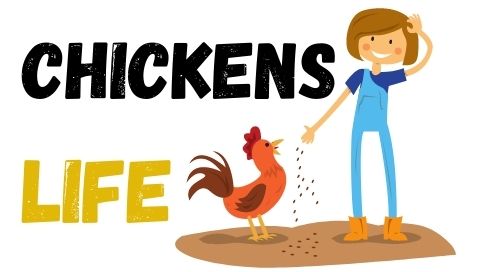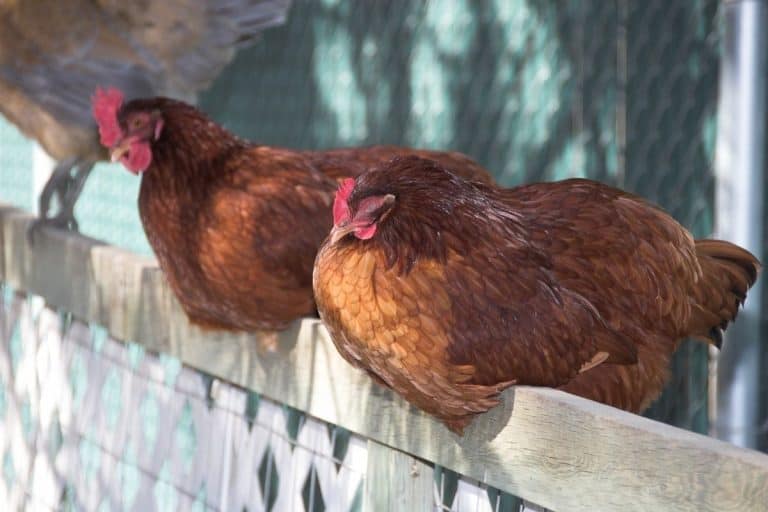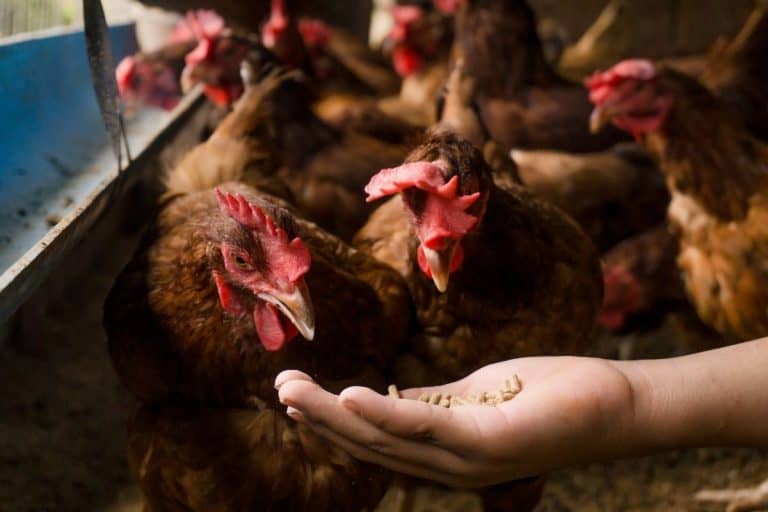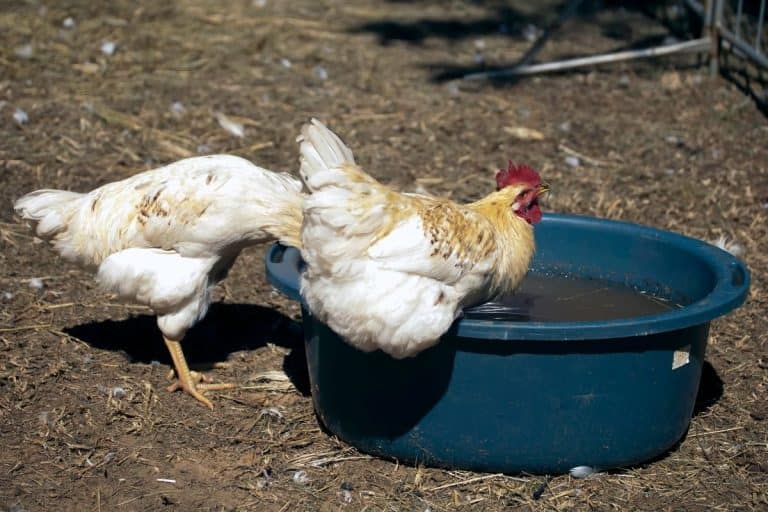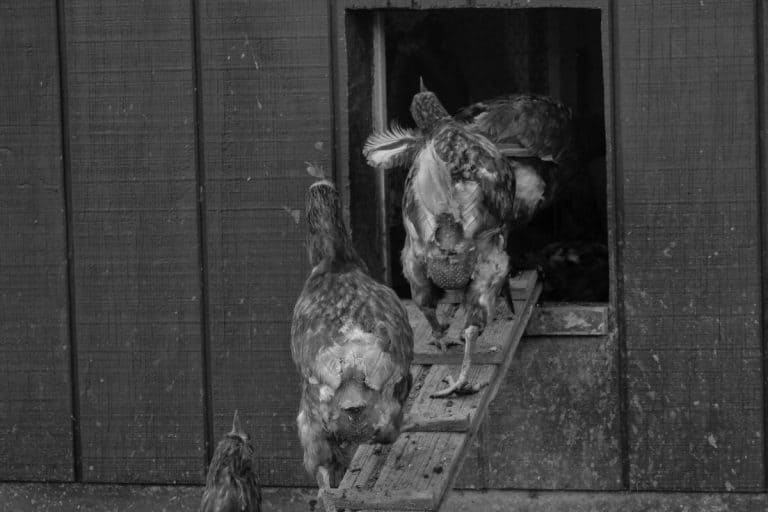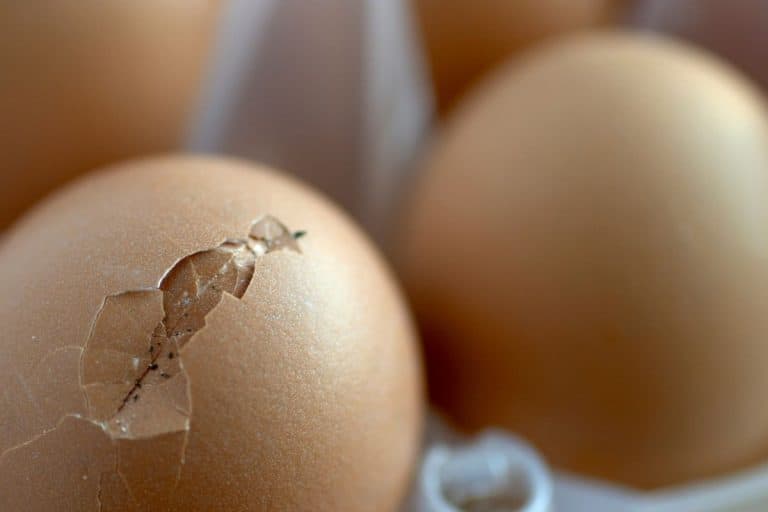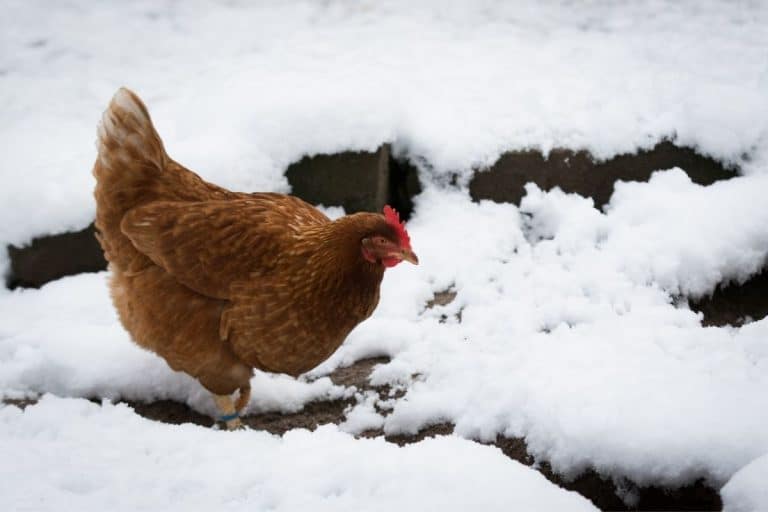Do Chickens Need Vaccines? (Advice from a veterinarian)
Chickens are one of the most common poultry birds kept on farms and homesteads worldwide. They provide us with meat and fresh eggs while keeping pests at bay in our backyards. However, chickens, like any other animal, are susceptible to various diseases and require proper preventive measures, such as vaccination, to stay safe.
Overall, whether commercial or backyard, all chickens should be vaccinated against prevalent diseases. Proper vaccinations at the appropriate intervals can help keep your chickens disease-free, improving your flock’s overall health and production.
Vaccinating chickens is not as simple as it may appear, and even experts sometimes fail to do so properly. So, whether you’re new to keeping chickens or have a lot of experience, this blog post is an in-depth guide about vaccinating chickens, so read on.
Hey chicken buddies: Quick heads-up before going further! I've put together a list of stuff I use and love for my flock. If you're curious about what keeps my hens happy, click here to find out.
Should I Vaccinate My Chickens?
Poultry vaccination is a broad topic, but when it comes to whether or not vaccinations are necessary for chickens either commercial or backyard, the answer is yes.
Many people believe that backyard chickens are hardy creatures that don’t need vaccinations. While this is true in the sense that they are hardier than commercial broiler chickens, however, their immune systems can be compromised due to a variety of factors, increasing the likelihood of infections and diseases.
Therefore, to avoid the risk of infections in your chickens, regardless of breed or whether they are commercial or backyard, you must get them vaccinated.
Vaccinating your chickens is critical, especially if your flock has suffered from diseases in the past.
If your chickens drink from a water source that is also accessible to other wild animals or birds, I strongly advise you to vaccinate them. This is because wild birds such as crows and certain waterfowl carry viruses that can cause deadly diseases in chickens, such as avian influenza.

Vaccinating backyard chickens has recently become more popular, as vaccinations were previously thought to be only necessary for commercial chickens.
Having a barrier against potentially fatal infections gives you peace of mind that your chickens are safe and is also good for the production of your chickens because vaccinations have no negative impact on the health of your chickens if done right.
Having your chickens vaccinated prevents infections, which increases production, which is ideal if you keep chickens for the purpose of getting fresh eggs and meat for your household.
If you keep chickens for business purposes, I strongly advise you to have them vaccinated. If you raise chickens for sale or sell their meat and eggs, vaccinations are a must because they will significantly improve your business’s profitability.
When your chickens are properly vaccinated, they will not contract infections or diseases, resulting in maximum production, which is great for your business. Moreover, you will not have to spend additional money on purchasing expensive medicines for your chickens.
Wait, I have some recommendations for you!
Before you go any further, I want you to take a look at some of the recommendations I've handpicked for you. I think these are essential items you should have for your chickens flock. You can check them out and buy them directly from Amazon.
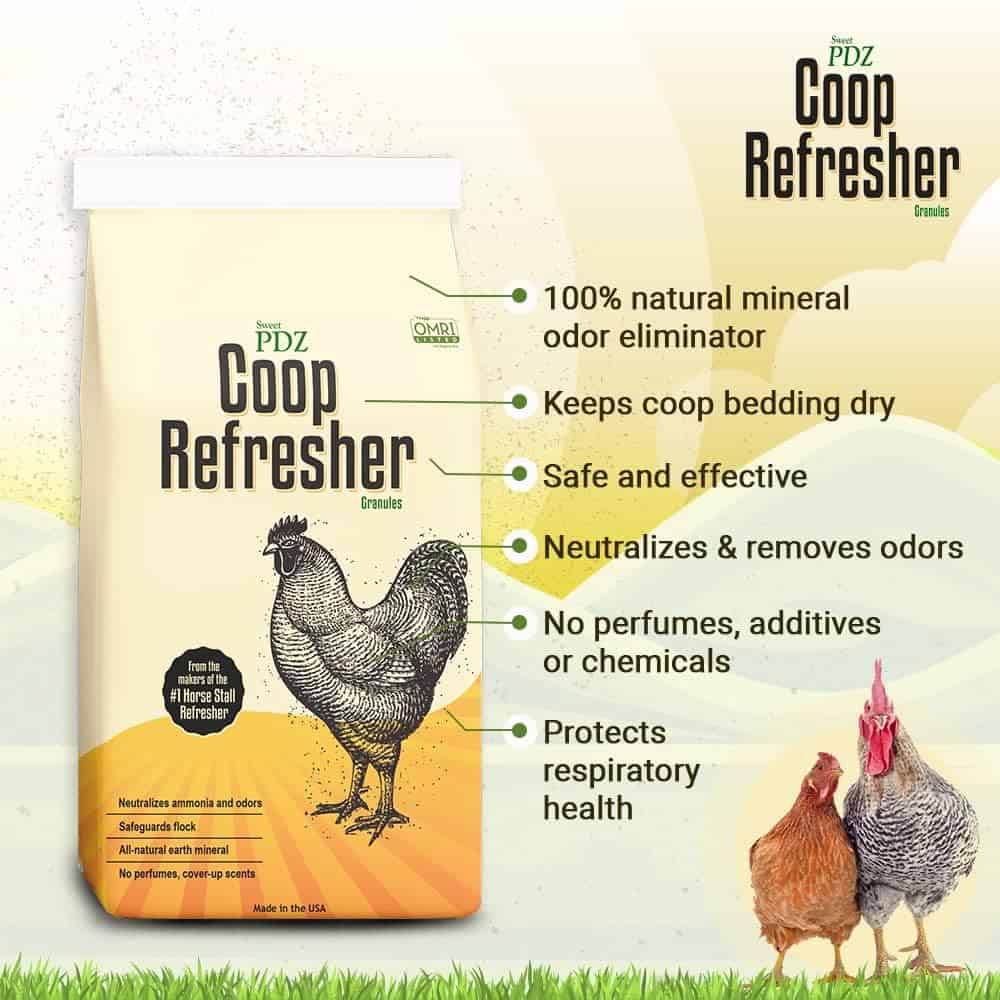 | 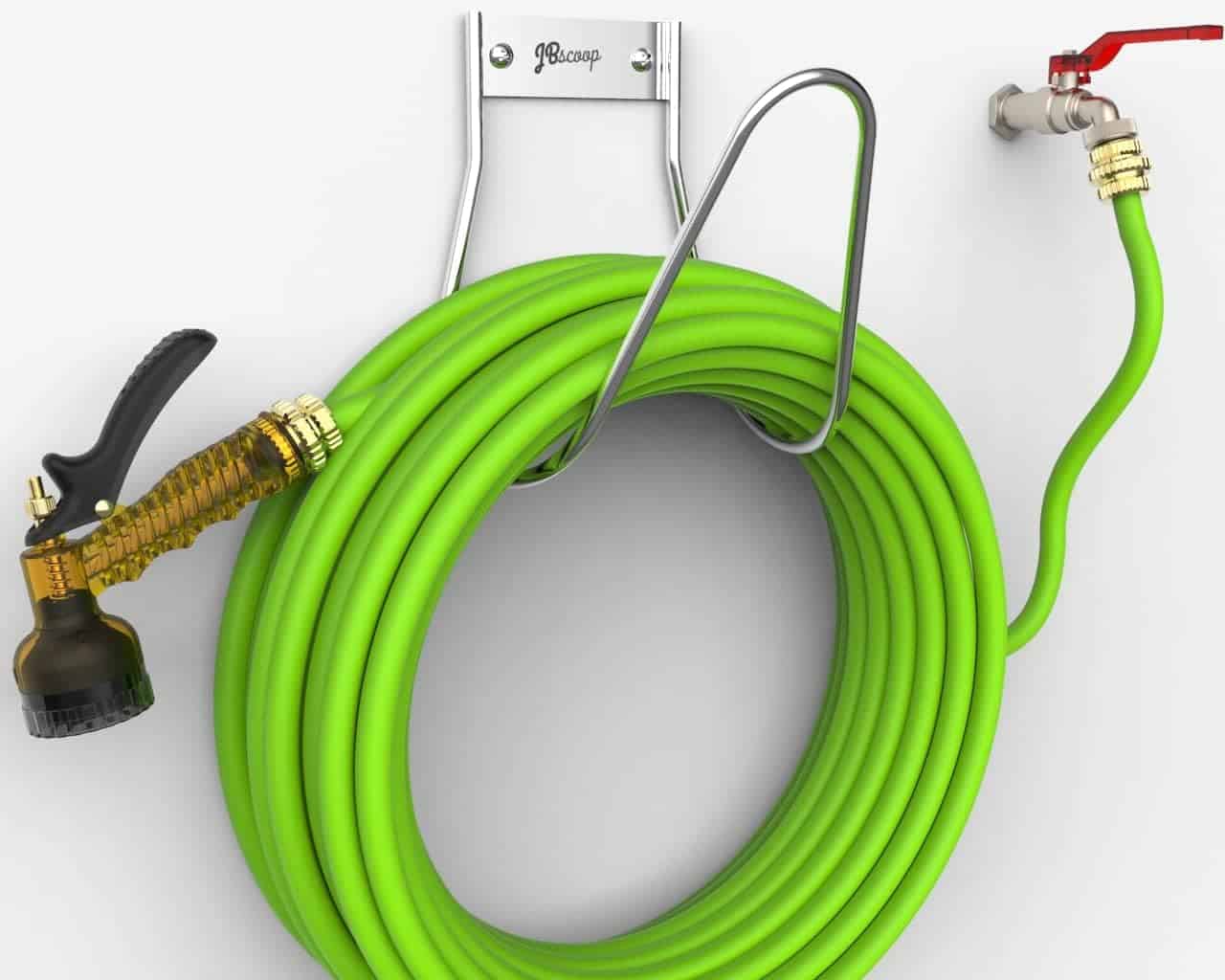 | 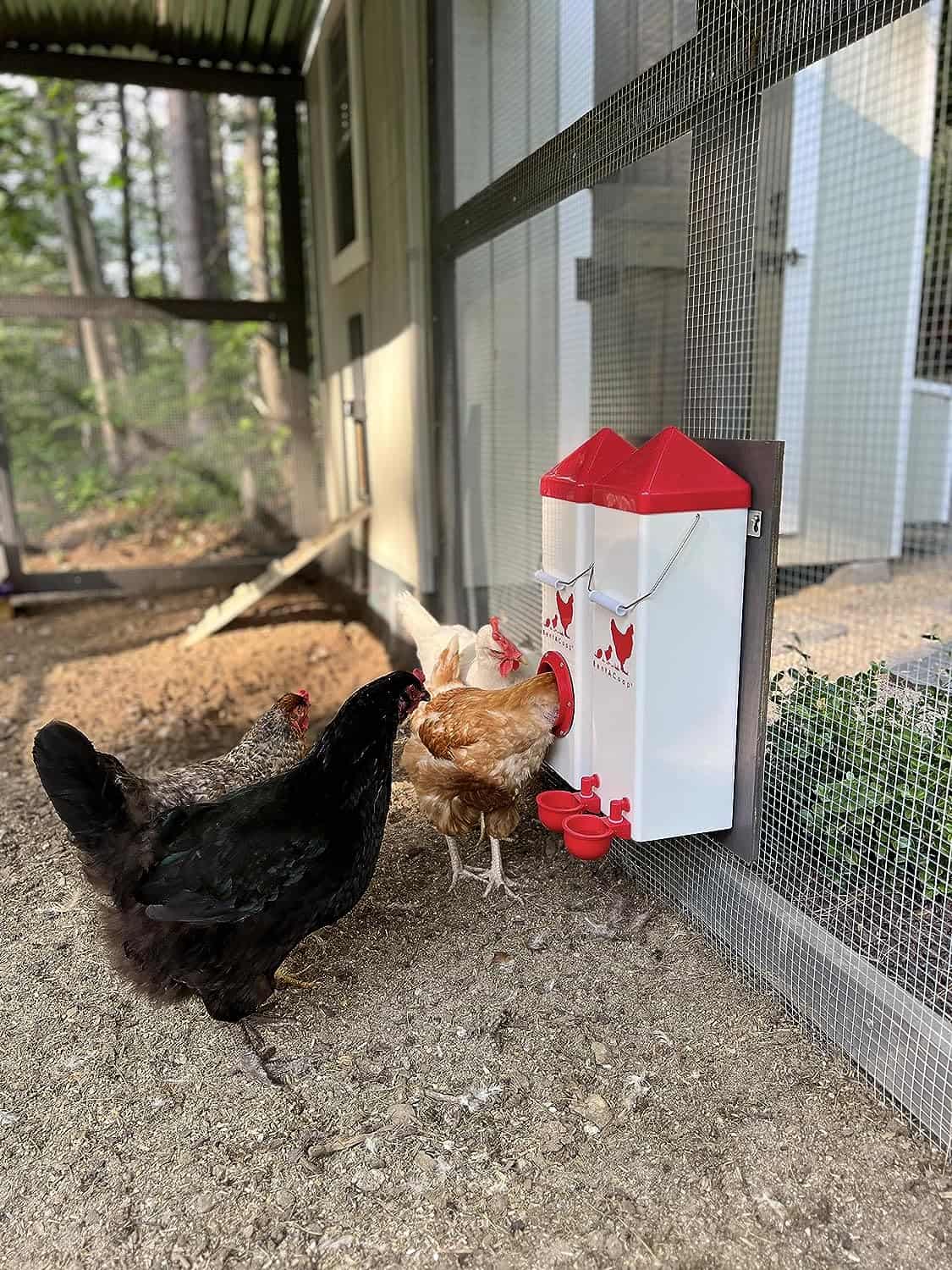 | 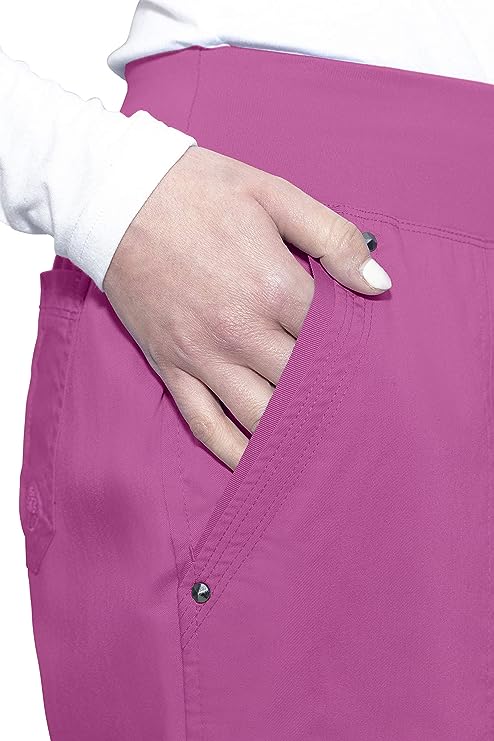 |
| Essential accessory for your coop | No more tripping over hoses! | Predator protection made easy | Comfort + style is possible |
Which Diseases Should Chickens Be Vaccinated Against?
There are hundreds of diseases that can affect chickens, and you will never be able to vaccinate your flock against them all. In general, I recommend only vaccinating your chickens against diseases that are common and prevalent in your region, depending on where you live.
The following are some of the common diseases against which chickens should be vaccinated:
- Marek’s Disease
- Newcastle Disease (ND)
- Avian Influenza
- Infectious Bronchitis (IB)
- Infectious Bursal Disease (IBD)
- Fowl Pox
- Fowl Cholera
- Salmonellosis
What Happens If You Don’t Vaccinate Your Chickens?
If you do not vaccinate your chickens, they may become infected with various diseases, some of which can be life-threatening to them, while others can seriously reduce their production and even cause permanent production loss.
Environmental changes caused by sudden drops or increases in temperature, nutritional changes, and other factors can put the chickens under stress, suppressing their immunity.
Even the toughest backyard chickens can become ill when their immunity is compromised, so having your chickens vaccinated will reduce their risk of infection.
How To Vaccinate My Backyard Chickens? Can You Do It Yourself?
Depending on the vaccine type, there are numerous ways to administer a vaccine to chickens. When administering vaccines to chickens, you can certainly do so yourself, but I will only suggest it if you are familiar with chicken vaccinations and have a basic understanding of how everything works.
To vaccinate backyard chickens, first, decide which diseases you want to protect your chickens against. After obtaining the vaccines, carefully read the labels to determine the route of administration.
If you are a beginner with limited experience vaccinating chickens or have never done it before, I recommend that you only vaccinate your chicken yourself if the vaccine is administered via drinking water.
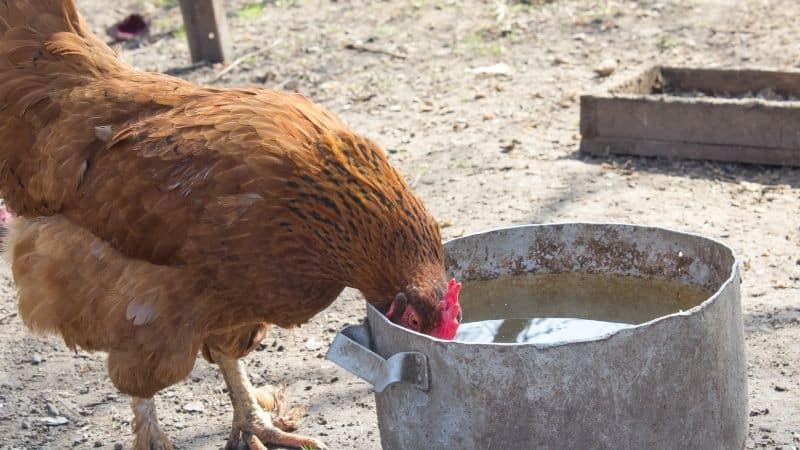
Before adding the vaccine to the drinking water of your chickens, make sure you measure the correct volume of water for the recommended dosage of the vaccine; otherwise, the vaccine will not produce immunity in the chickens.
When it comes to vaccines that are administered via injection, either intramuscular or subcutaneous, I recommend leaving it to the professionals and not doing it yourself because you could harm the chickens in the process.
Other routes you should avoid using to administer vaccines to chickens, especially if you are a beginner, include:
- Wing web
- Spraying
- In-ovo
Tips for successfully vaccinating your chickens
I recommend taking a look at the following tips to help you successfully vaccinate your chickens and achieve the best results:
Maintenance Of Cold Chain
The cold chain refers to storing the vaccine at a specific temperature from the time it is manufactured until it is administered. If the cold chain is broken and the vaccine, particularly the live vaccine, is exposed to high temperatures, it will lose viability and produce no results.
If the cold chain of the vaccine is not properly maintained, your chickens will still get infections even after being vaccinated, so I strongly recommend purchasing vaccines from reputable companies that do not overlook this important step.
Timing Of The Vaccine
The time of day is also an important factor that affects the success of a vaccine. Ideally, you should vaccinate your chickens early in the morning, preferably before sunrise, because the chickens are completely relaxed and not stressed at this time, and all of their hormone levels are within normal range.
You can also vaccinate chickens after sunset, but avoid doing so during the day because chickens are busy foraging, and if it’s hot outside they will also be under heat stress.
Never Vaccinate Sick Chickens
Vaccination can cause stress in your chickens for a short period of time, but if they are healthy, they can easily cope with the stress and return to their normal routine quickly.
So I never recommend vaccinating an ill chicken. Because if you vaccinate an ill chicken, the stress from the vaccination will further deteriorate its health rather than boost immunity.
Route Of Administration
Every vaccination has a different route of administration, which is usually specified on the label.
Some chicken vaccines are administered through drinking water, while others are sprayed or injected subcutaneously, among other methods.
Make sure to carefully read the labels and instructions for the vaccine’s route of administration. If the vaccine is administered incorrectly, it will not produce immunity and may even endanger the lives of your chickens.
Never Vaccine Chickens Against A Non-Prevalent Disease
I recommend that you never vaccinate your chickens against a disease that is not prevalent in your region, as this will only introduce new pathogens (germs) into your flock.
Because vaccines are essentially dead or weakened pathogens (germs), vaccinating your chickens against a disease that is not present in your area simply exposes them to new germs that may cause that disease in the flock or future flocks.
Vaccinate After 10 Days
When a chick hatches, it typically receives passive immunity in the form of antibodies against disease-causing pathogens from its mother.
Vaccinating your chicken before 10 days will result in a reaction of these antibodies with the pathogens in the vaccine, resulting in short-term immunity.
A disease, known as Marek’s disease, is an exception, and vaccination against it must be administered on the first day.
Never Use Expired Vaccines
Ensure that none of the vaccines you administer to your chickens are expired, as they will not produce immunity.
Don’t Put The Vaccine In Direct Sunlight Or Near A Heat Source
Placing vaccines in direct sunlight or close to a heat source can reduce their viability, particularly for live vaccines. Because UV rays and heat can harm the live, weakened pathogens in vaccines, hence they will not be able to produce immunity.
Wear Personal Protective Equipment
Wear PPE (Personal Protective Equipment) such as goggles, gloves, etc when vaccinating your chickens. Because some of the viruses in the vaccines can cause diseases in humans, for example, if a splash of the Newcastle Disease vaccine gets into your eye, you will develop severe conjunctivitis. Also, make sure to properly dispose of the vaccination containers after use.
Use Chlorine-Free Water
Since some vaccines are administered through the chickens’ drinking water, make sure the drinking water in which the vaccine is added contains no chlorine or other sanitizers, as these can reduce the viability of the vaccine.

